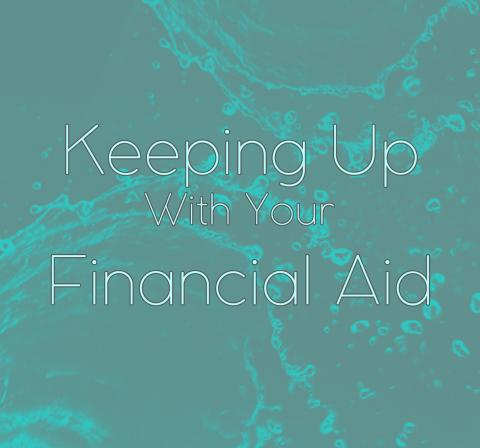Career Opportunities in Higher Education: A Comprehensive Guide
May 01,2023
Over 20 percent of Americans have earned a bachelor's degree as their highest level of education. Even more have gone on further. And, those numbers are rising. So, if you want to work in higher education, there are plenty of options for you.
Higher education offers a wide range of career opportunities across various fields. So, it can be tricky to figure out what the right career journey for you is.
Are you interested in working in higher ed after you graduate? Read on for some of your top options.
Academic Administrator
This career path involves overseeing academic departments, managing budgets, and developing policies. Administrators do this while working with faculty and students. Examples of positions in academic administration include provost, dean, and department chair.
Most academic administrator positions need at least a master's degree. They could also need a relevant doctoral degree.
Academic administrator positions require several years of experience in teaching, research, or education.
Consider starting in an entry-level position to gain experience and advance your career. For example, you could start as an academic advisor or program coordinator.
Networking with other professionals in higher education can be valuable. It helps you build connections and learn about potential job opportunities.
Joining professional organizations can be a good way to build your network. You could also try attending relevant conferences. You could also start working with different academic organizations while you're still in school.
Some academic administrator positions may ask for specific certifications. Examples include Certified Higher Education Professional or Certified Fundraising Executive credentials.
It's important to stay current on industry trends and developments in higher education. This can be done by reading industry publications and attending conferences. You may also want to participate in professional development opportunities.
Faculty Member
Faculty members are responsible for teaching courses, conducting research, and mentoring students. Depending on the school, jobs include assistant professor, associate professor, or full professor.
There are lots of strategies you can use to become a faculty member. Research is an important aspect of faculty positions, especially in research-intensive institutions. Develop a research agenda. Then, publish your work in academic journals or present it at conferences.
As a faculty member, you will need to communicate ideas to students and colleagues. Developing strong communication skills, both written and verbal, is essential.
Of course, it takes a long time to become a professor. Many universities require professors to have a Ph.D. or other terminal degree in their field of study. A Ph.D. typically takes three to five years to complete. Plus, Ph.D.s require original research and a dissertation.
And becoming a full, tenure-track professor is a competitive (and political) process. So, you need to carefully think about whether or not you are up for it.
Student Affairs Professional
A student affairs professional works to support and enhance the student experience. They work in fields like residence life, student activities, counseling, and health services.
The main goal of this job is to help students succeed by providing resources, support, and guidance. Workers also look at things like performance, mental health, relationships, and career development.
Student affairs professionals also work to create a sense of community on campus. They try and promote a positive campus culture. They collaborate with other employees to find new ways to support student success.
Student affairs professionals usually start by working with college students in some capacity. You can do this through internships, volunteer work, or previous employment. These jobs are well-suited for people with a passion for working with students.
Researcher
Academic researchers conduct research in a specific field of study. They work to advance existing knowledge. And, they contribute to the understanding of a particular subject area.
These researchers aim to investigate and analyze a specific problem or question. They design and carry out experiments, collect and analyze data. Then, they interpret the results to draw conclusions and make recommendations.
Academic researchers also write research proposals. They apply for grants to fund their research. Then, they publish their findings in academic journals and other publications. They may also attend conferences and present their work to others in their field.
They must have a strong foundation in research methods. Some methods include statistics, data analysis, and experimental design. They also need to be able to get complex ideas across effectively.
To become an academic researcher, individuals typically need to hold a doctoral degree. You'll usually start off as a research assistant. Eventually, you'll work your way up to become a research associate or fellow.
Academic researchers may work in a wide variety of fields. Some examples include natural sciences, social sciences, humanities, and engineering.
Some researchers specialize in interdisciplinary fields, such as environmental science or cognitive neuroscience. These fields require knowledge and skills from many disciplines.
Librarian
An academic librarian works in the library to support the research, teaching, and learning needs of students, faculty, and staff.
Some types of academic librarians include:
- -Reference librarians
- -Collection development librarians
- -Instructional librarians
- -Technology specialists
Academic librarians provide access to information resources. Additionally, they support the research and learning needs of students and faculty.
They may specialize in a specific subject area or work in specialized libraries. These could include law or medical libraries.
They help students and faculty find and use resources. These could include books, journals, databases, and other materials. They may also teach research skills, such as searching for and evaluating sources. And, they work to develop the library's collection to meet the needs of the academic community.
Academic librarians may collaborate with faculty to design and teach classes. They work with library staff to provide technology support. Librarians help develop digital resources, such as online tutorials and research guides.
Academic librarians need to hold a master's degree in library science or a related field. Some positions may require additional education or experience in a specific subject area.
Strong communication and interpersonal skills are also important. Academic librarians often work with diverse groups of people.
Admissions Counselor
Admissions counselors are responsible for recruiting and enrolling students. They assist with financial aid and offer information about scholarships. They may work for colleges, universities, or private schools.
They may visit high schools and attend college fairs to meet with potential students. They also review applications and make admissions decisions. If you start in this field, you'll work with a team of other admissions professionals.
Admissions counselors also play a key role in helping students understand the financial aid process. They work with students to determine their eligibility for financial aid. They then provide guidance on how to apply.
Counselors need to have a good understanding of their school and the programs it offers. They need to know the admissions process and requirements like the back of their hand.
These counselors may specialize in a specific area. Some areas include international admissions, transfer admissions, or recruitment for specific academic programs.
Career Services Professional
This career path involves helping students and alumni with career development.
This includes skills like job searching, resume writing, and networking. Career services professionals may also develop partnerships to create internship and job opportunities.
The main goal of a career services professional is to assist students and alumni to find jobs that fit with their interests, skills, and values.
They provide career counseling, resume and cover letter assistance. They help with interview preparation, and job search strategies. These help students connect with companies they could work with after graduation.
Career services professionals work closely with employers to understand their hiring needs. Then, they connect them with qualified candidates. They may develop partnerships with companies and organizations. This can create internship and job opportunities for students and alumni.
They must also have a good understanding of the job market and industry trends. And they'll want to keep on top of the skills and qualifications employers are looking for.
Institutional Researcher
Institutional researchers are responsible for collecting and analyzing data. The data could include things like student enrollment, retention, and graduation rates. They may also be involved in accreditation and program evaluation.
Institutional researchers analyze data using statistical methods and software. They then try and identify trends, patterns, and insights. They may create reports, dashboards, and visuals to show their findings to decision-makers.
They provide information to decision-makers to help them make decisions. These decisions could be about enrollment, resource allocation, academic programs, or strategic planning.
If you work in this field, you could conduct research on student success. You'll test programs and institutional effectiveness. They may design and put in place surveys, focus groups, and interviews to gather data.
Institutional researchers are responsible for ensuring their data's accuracy and integrity. They must adhere to ethical standards and guidelines for data collection and use.
Instructional Designer
Instructional designers work with faculty to develop and implement effective teaching strategies and educational technology tools. They may also be involved in developing online courses and programs.
They work with faculty and subject matter experts to analyze learning needs. Then, they work to determine the best instructional strategies and technologies to meet those needs.
Instructional designers design and develop online courses, modules, and instructions using educational technologies. Examples include learning management systems, multimedia, and interactive simulations.
If you become an instructional designer, you'll work with faculty to facilitate course development. They provide guidance on course design, instructional strategies, and best practices.
You'll also conduct assessments of learning outcomes. This helps ensure that instructions and strategies are effective in meeting learning objectives.
That's not all that instructional designers do. They provide training and support to faculty and students to help them properly use the education technology.
Continuing Education Professional
Continuing education professionals develop and manage programs for non-traditional students. These include adult learners or working professionals. They may work in academic departments or continuing education divisions.
These employees support the continuing education and professional development needs of adults. They work to provide opportunities for adult learners to enhance their skills and get new knowledge. This helps these learners advance their careers.
Continuing education workers need to offer programs and courses that meet the diverse needs of adult learners. It's also important for them to work with businesses to create employee training programs.
They may be responsible for marketing and promoting the programs and courses offered. Then, they manage course registration and enrollment. They may also collaborate with others to plan conferences or workshops.
Continuing education professionals can specialize in things like workforce development. They could help create professional certification programs, or personal enrichment courses.
Course Coordinator
A course coordinator is a professional who works in a college or university to support the delivery of courses and programs. They work to ensure that courses run smoothly. They make sure students have access to the resources they need to be successful.
Course coordinators help with the delivery of a course or program. They manage the logistics, resources, and administrative tasks associated with it.
Course coordinators may be responsible for managing registration and enrollment. They may track student progress. They could even provide support to students who are struggling with coursework.
They work on managing registration and enrollment. They help track student progress. They also provide support to students who are struggling with coursework.
These workers also collaborate with other departments or organizations to coordinate special events. For example, they might plan guest lectures or field trips.
Career Opportunities in Higher Ed: Now You Know
These are just a few examples of the many higher education career options available. To decide about your future career, you'll have to go through all your options and decide what's right for you.
Do you want to ensure you're properly set up for your future career in higher ed? Join Honor Society today.





